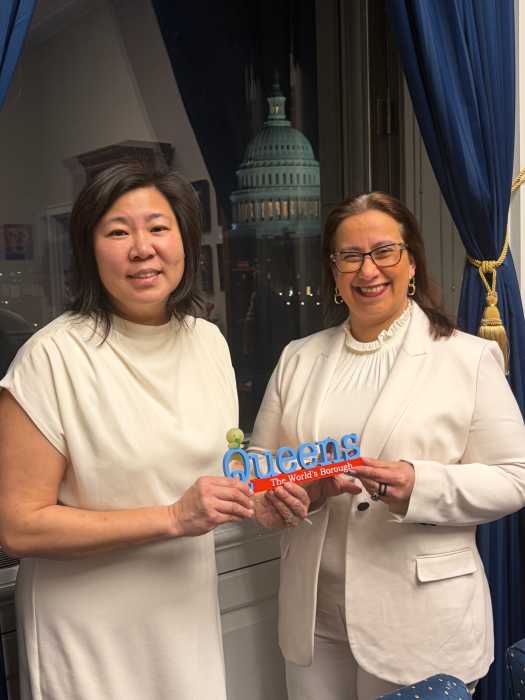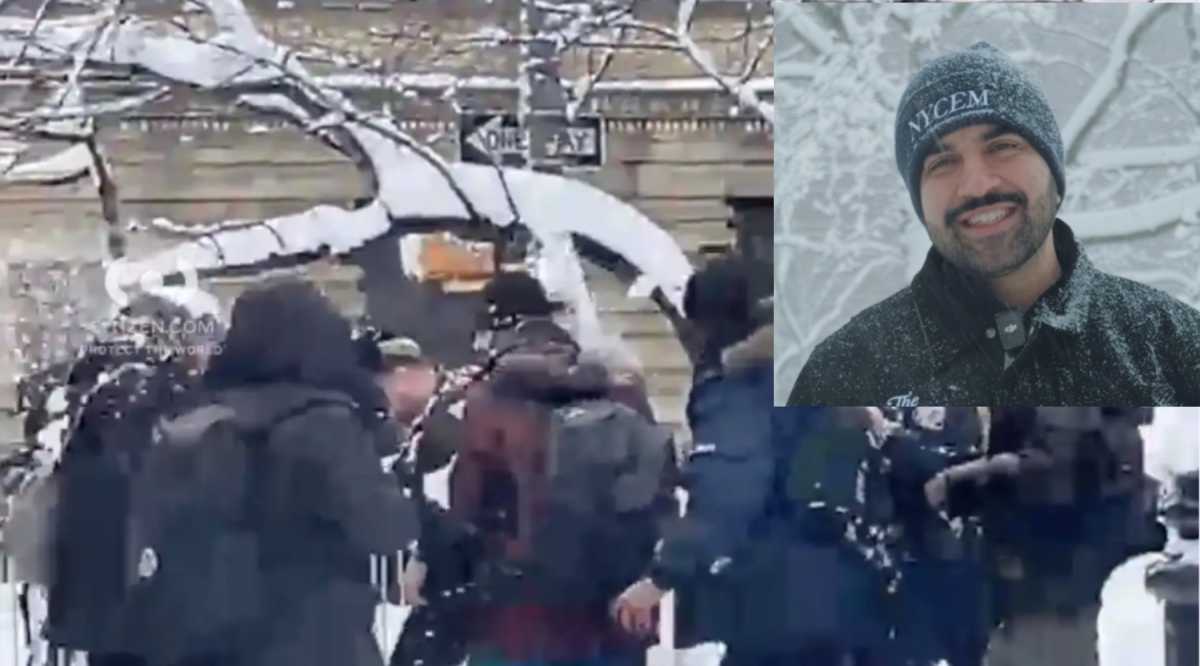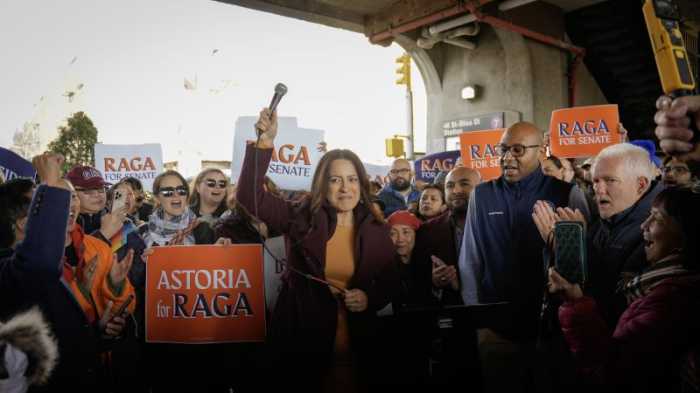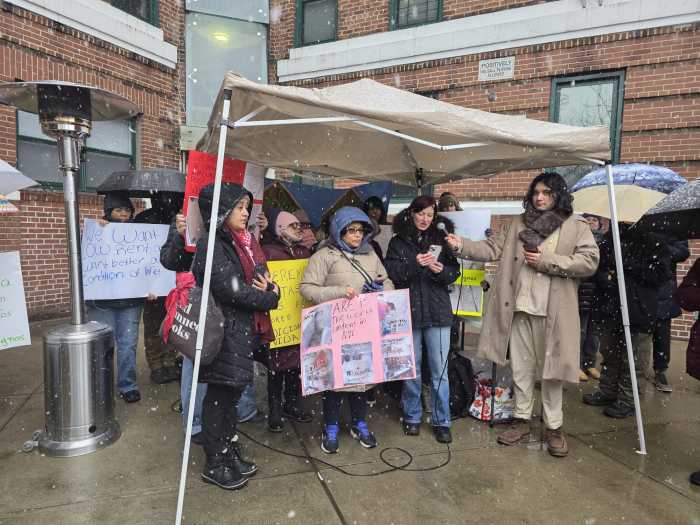By Bill Parry
When retired City Council Speaker Peter Vallone, Sr. took his seat at former Gov. Mario Cuomo’s funeral in Manhattan’s St. Ignatius Loyola Church Tuesday, he had a revelation. “I thought I was listening to Mario speak,” he said.
What Vallone heard was an emotional 40-minute eulogy delivered by current Gov. Andrew Cuomo, one that captured his father’s legacy in Queens as well as his disdain for politics.
“In general, he disrespected politicians and the political system,” Cuomo told the hundreds of friends, family members and fellow lawmakers . “He never studied politics or joined a political club. He never campaigned for anyone and his early life, until his late 30s, was all about becoming a lawyer and practicing law.”
And yet, Mario Cuomo, who died Jan. 1 at the age of 82, would be a three-term governor of New York state from 1983-94.
He would become a liberal standard bearer at a time when Reagan conservatism was sweeping the nation. The man who became known in the press as “Hamlet on the Hudson” began his storied career as a classical political outsider.
The son of Italian immigrants, Mario Cuomo grew up in a South Jamaica home behind the grocery store his parents ran. After his family moved to Holliswood, Cuomo graduated from St. John’s Prep and after a year at St. John’s University he went to play minor league baseball in the Pittsburgh Pirates organization.
The year was 1952. Cuomo received a $2,000 signing bonus to play outfield but he was hit by a pitch, The injury ended his baseball dalliance and sent him back to Queens.
Back to St. John’s University and then St. John’s Law School. As an attorney, Cuomo represented a group of Corona homeowners whose homes were being condemned by the City to build a ball field.
“They were poor, working families and they couldn’t possibly fight City Hall,” Andrew Cuomo said. “He took on their cause to right the injustice that he saw. Central to understanding Mario Cuomo is that Mario Cuomo was from Queens.”
It was a stand that still reverberates today.
“The former governor will always hold a special place in the hearts of Corona residents, like myself,” state Assemblyman Francisco Moya (D-Jackson Heights) said. “Always a champion of immigrants and low- and middle-income New Yorkers, Gov. Mario Cuomo got his start in public service by protecting dozens of Corona families from eviction.”
Andrew Cuomo explained that his father’s identity was deeply rooted in Queens.
“Mario Cuomo’s birthmark from the outer borough was deep and he wore it with pride,” he said. “He had a natural connection with the outside looking in, the person fighting for inclusion, the underdog, the minority, the disenfranchised, the poor. He was always the son of an immigrant. He was always an outsider and that was his edge.”
Mario Cuomo fell short in the race for mayor against Ed Koch in 1977. But he went on to defeat Koch in a race for governor, despite long odds in 1982. During his 12-year stay in the Governor’s Mansion, Cuomo remained closely tied to his borough.
“When he first ran for governor, he was an outsider, not part of the Democratic machine,” said Ann Jawin, the founder of Queens’ Center for the Women of New York.“He really depended on the grassroots neighborhood groups in Queens, people like Saul Weprin.”
City Councilman Mark Weprin (D-Oakland Gardens), the son of the late Assembly Speaker Saul Weprin, said about Cuomo: “He stuck to his principles, even when he knew they were unpopular. He was opposed to the death penalty, even though it was wildly popular in the 1970s. He had a way of speaking from his heart directly into yours, and that is a unique talent in this business.”
So unique that his soaring oratory became his legacy not just nationally but around the world. During the 1984 Democratic Convention, Cuomo delivered a keynote address that debunked the myth of Reagan’s America.
“There are people who sleep in the city streets, in the gutter, where the glitter doesn’t show,” Cuomo said. “There is despair, Mr. President, in the faces you don’t see, in the places you don’t visit in your shining city.”
The speech catapulted him into the national conversation as a potential presidential candidate, but Cuomo never ran.
During his eulogy, Andrew Cuomo shared his father’s secret to speech-crafting: It had nothing to do with an audience’s reaction.
“He said, ‘Who cares about what an audience wants to hear? It’s not about what they want to hear, it’s about what you need to say,’” Andrew Cuomo recalled. “And that, my friends, was the essence of Mario Cuomo. He was not interested in pleasing the audience: not in a speech, not in life. He believed what he believed and the reaction of the audience or the powers that be, or the popularity of his belief was irrelevant to him. Mario Cuomo was at peace with who he was and how he saw the world. This gave him great strength and made him anything but a typical politician.”
Reach reporter Bill Parry by e-mail at bparry@cnglocal.com or by phone at (718) 260–4538.


































